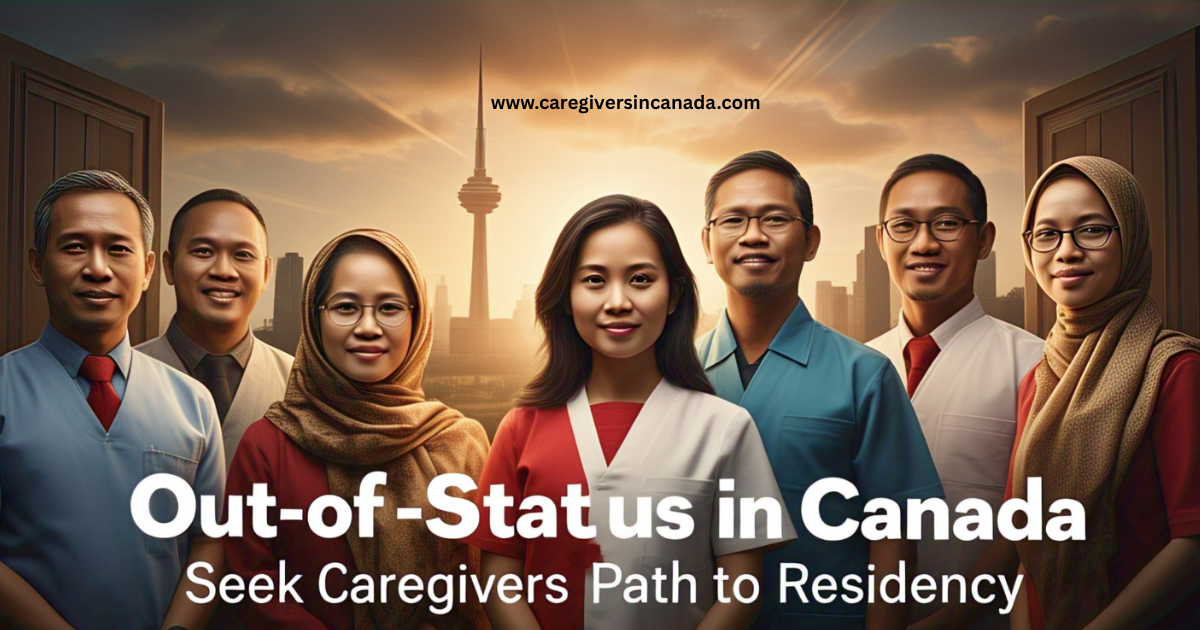
Out-of-Status Caregivers in Canada: Find Help To Regain Status
Out-of-status caregivers in Canada face constant uncertainty as they await immigration reform. Many arrived under older caregiver programs hoping to earn permanent residency after two years of work. Instead, some saw their PR applications refused without clear reasons. Now, after years without legal status, they continue caring for families but cannot access basic rights or benefits. Many endure long workdays and even abuse in silence for fear of jeopardizing their chance to stay. Immigration experts note countless caregivers remain essential to Canadian families, yet lack the legal protections and recognition they deserve.
Why Caregivers Lose Status and Face Challenges: Out-of-Status Caregivers in Canada
- Backlogs and Delays: Permanent residency applications can take many years. Caregivers may meet all program requirements but still wait a decade for approval or family reunification.
- Job Ties and Abuse: Older programs tied visas to a single employer. Leaving an abusive job often meant losing legal status. As a result, many endured mistreatment to avoid deportation.
- Strict Requirements: Programs often imposed high language or education standards. Recent pilots lowered these barriers, but by then thousands of caregivers were already excluded and out of status.
New Immigration Pilots and Limited Pathways
In March 2025, the federal government launched new Home Care Worker Immigration Pilots for child care and home support. Caregivers with valid Canadian job offers can now apply for permanent residency immediately. Initially, only caregivers already in Canada could apply, and both streams closed almost instantly. For example, the Home Support stream had 2,750 spots (150 reserved for undocumented applicants), all claimed by early afternoon on launch day. The Child Care stream likewise filled its quota on day one. Lawyers note the programs “hit their application cap… within hours” – canadavisa.com. A second intake (for applicants abroad) will open later in 2025, offering another chance for those who missed out.
IRCC also set up a special policy for those who did apply. Caregivers who submitted permanent-residence applications under the pilot can apply to restore their status and get an open work permit. This offers a lifeline for applicants whose paperwork is in process. However, many caregivers remain excluded. Advocates stress that “many thousands of caregivers… have become undocumented over the last five years,” and they urge the government to act so that no caregiver is left behind.
Advocacy and Community Support
Community members and allies have rallied in support of caregivers. Slogans like “No Worker Left Behind” have appeared on protest signs to emphasize that every caregiver deserves protection. Organizers like Jhoey Dulaca (pictured below) work full-time with migrant rights organizations to support undocumented workers. They helped secure reforms like PR-on-arrival for new caregivers but note that many undocumented workers are still left out. As one leader declared, “the work is not over”, Canada must move urgently to include undocumented caregivers, otherwise known as out-of-status caregivers in Canada – migrantrights.ca. Caregivers can join these efforts by connecting with community groups, signing petitions, and contacting their MPs. Campaigns by the Migrant Rights Network and Migrant Workers Alliance keep public pressure on the government. Every voice adds weight to the demand for fair immigration pathways.
Finding Legal Employment and Visa Sponsorship
Another route is to secure a Canadian job with visa sponsorship. Some families and agencies can hire foreign caregivers via a Labour Market Impact Assessment (LMIA). Caregivers should use trusted job platforms and networks to find these roles. For example, our CaregiversInCanada.com platform connects caregivers with Canadian families and highlights sponsored positions. (See our Visa Sponsored Caregiver Jobs in Canada guide.) A valid sponsored job offer will let you apply for a Canadian work permit and then permanent residence through the caregiver pilot or other programs.
Practical Steps and Resources
If you are an out-of-status caregiver, consider these actions:
- Check eligibility and apply: Use IRCC’s official tools to see if you qualify under the new pilots. If you have a pending PR application, submit a restoration of status (open work permit) application immediately – canada.ca.
- Gather documentation: Collect all proof of your caregiver work (contracts, pay stubs, tax records) to support any applications.
- Seek assistance: Consult reputable immigration advisors or community legal clinics to help prepare your paperwork.
- Connect with support groups: Organizations like the Migrant Workers Alliance and Migrant Rights Network offer guidance and advocacy on your behalf.
- Stay informed: Follow official IRCC updates and reliable news on caregiver immigration (for example, see the Home Care Worker Pilots page for program details).
Helpful Links
- IRCC – Home Care Worker Pilots: Official information on the new caregiver PR programs – canada.ca.
- CaregiversInCanada.com Blog: e.g. “Canada Offers Immediate Permanent Residency for New Caregivers” (details on the 2025 pilots).
- Migrant Rights Network: News and releases from migrant care worker advocates – migrantrights.ca.
In conclusion, out-of-status caregivers in Canada have already given much to Canadian families. Now they deserve clear paths to legal status. The new pilots and advocacy campaigns are steps forward, but further action is needed. Caregivers can take charge by applying through existing programs, seeking visa-sponsored jobs (see our Visa Sponsored Caregiver Jobs in Canada guide), and joining advocacy efforts. Together, Canadians can ensure that no caregiver is left behind – every caregiver deserves legal status and peace of mind in Canada.

